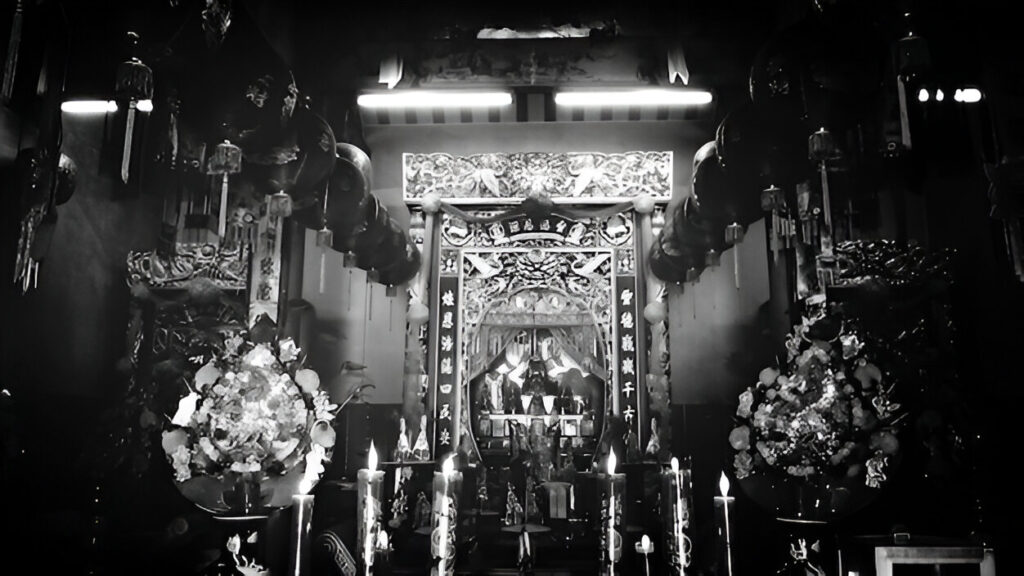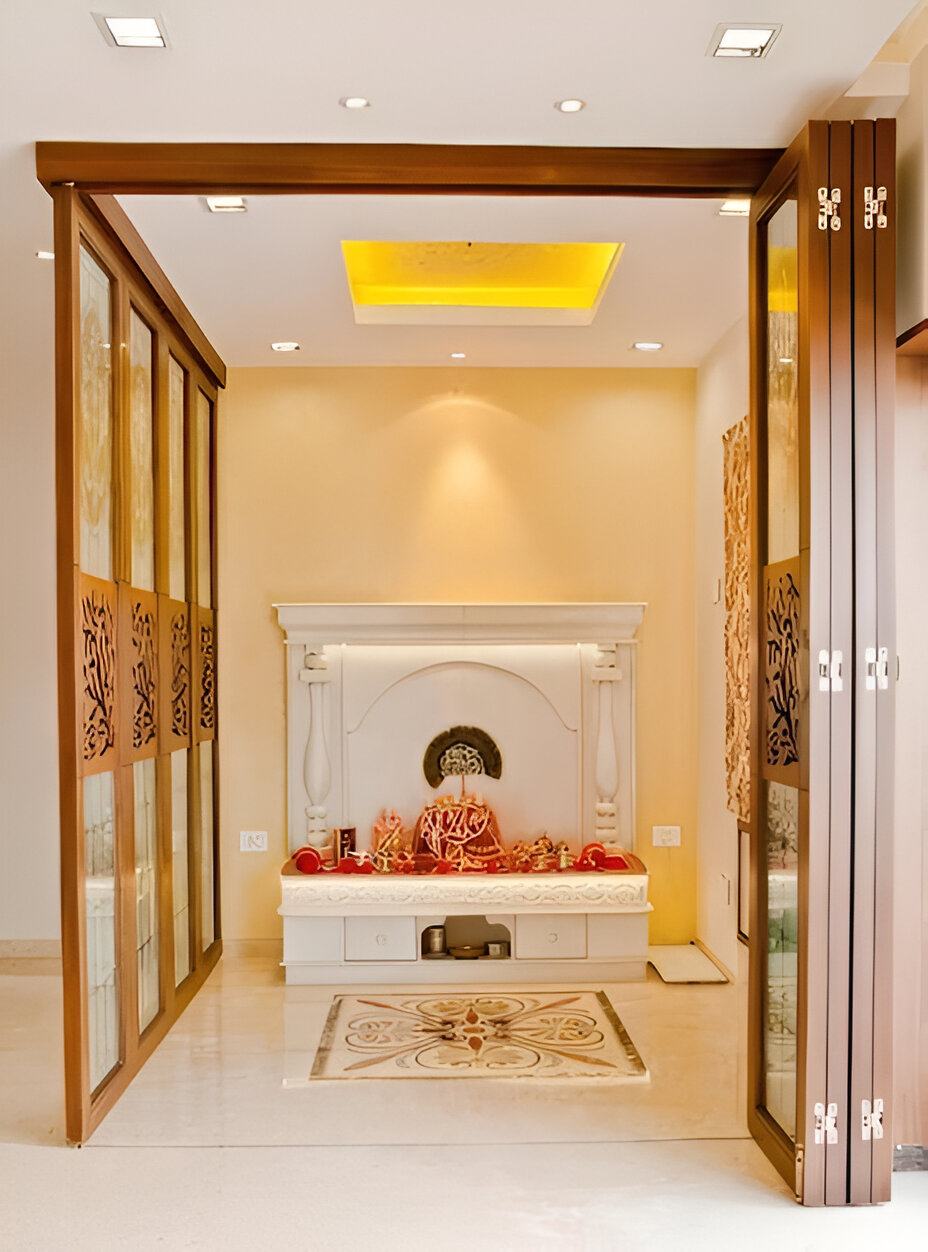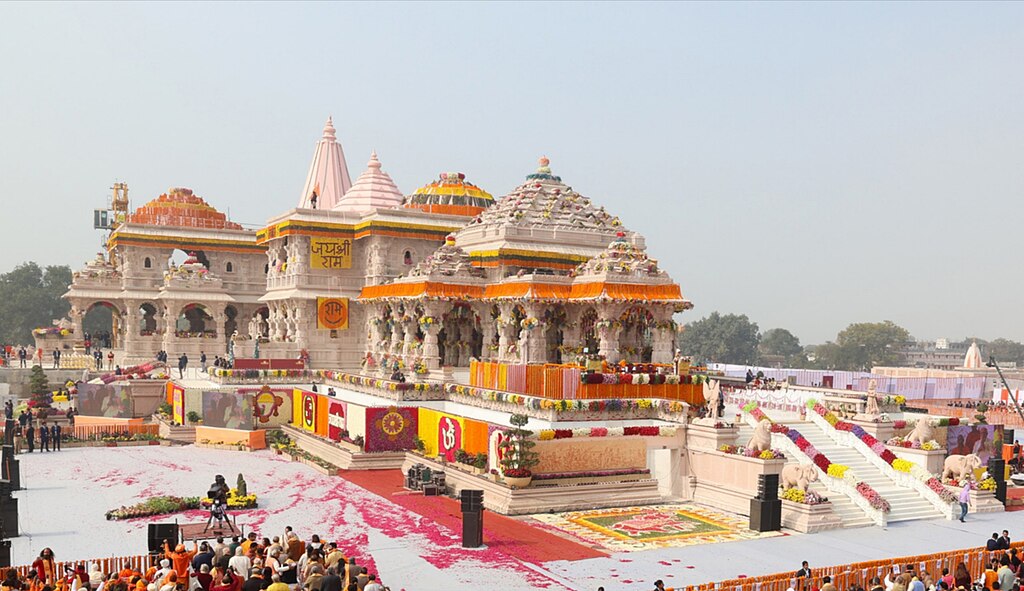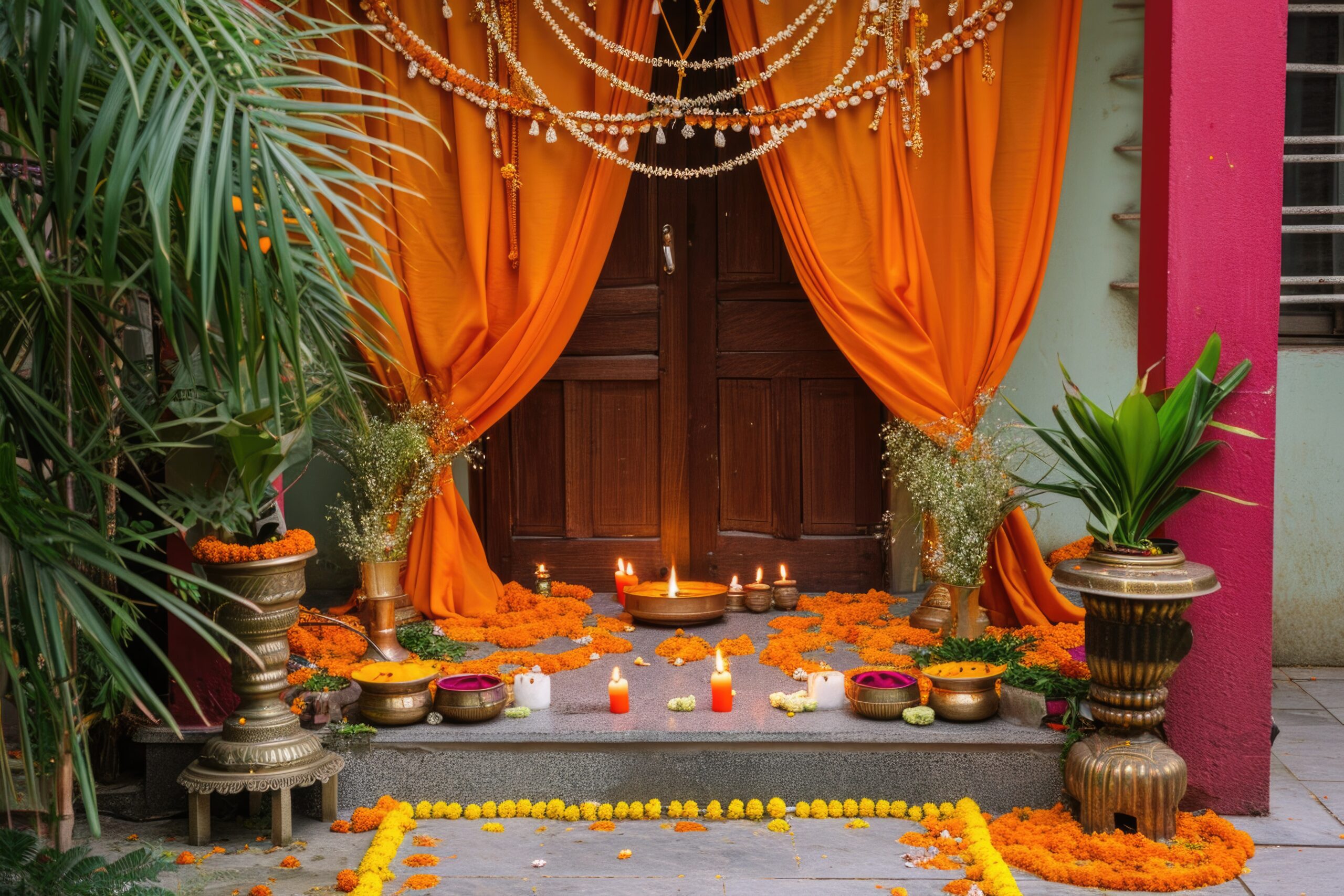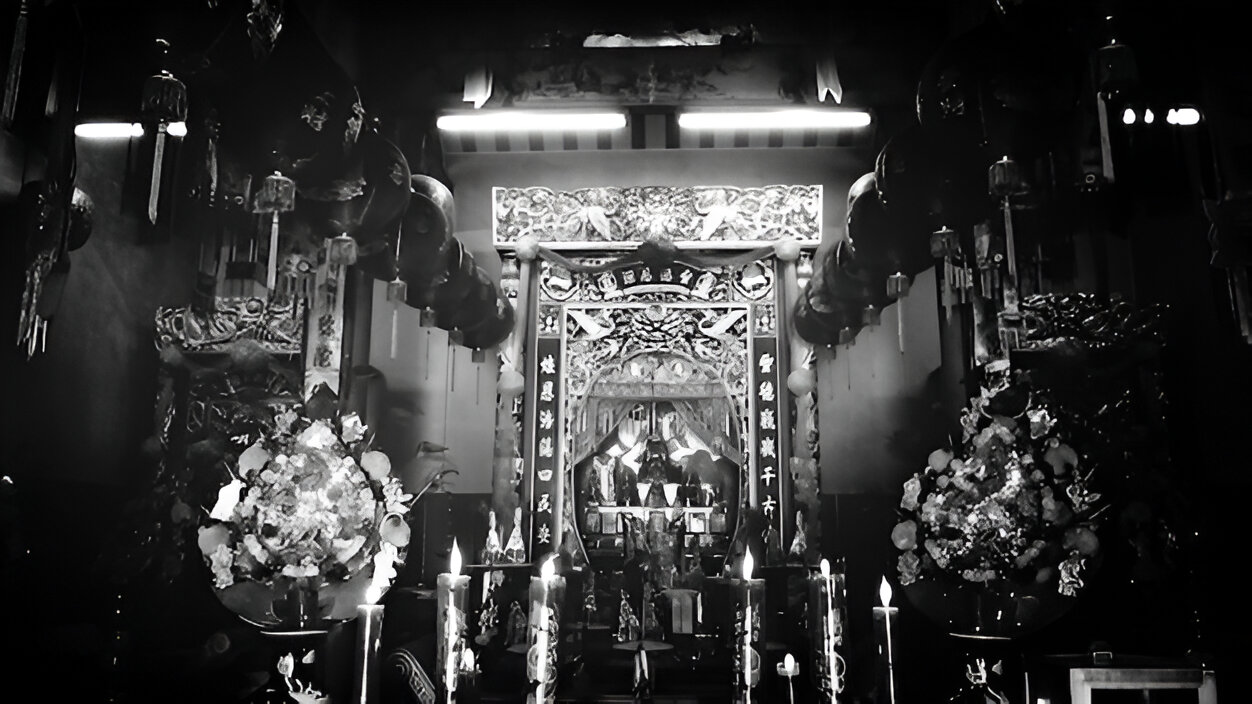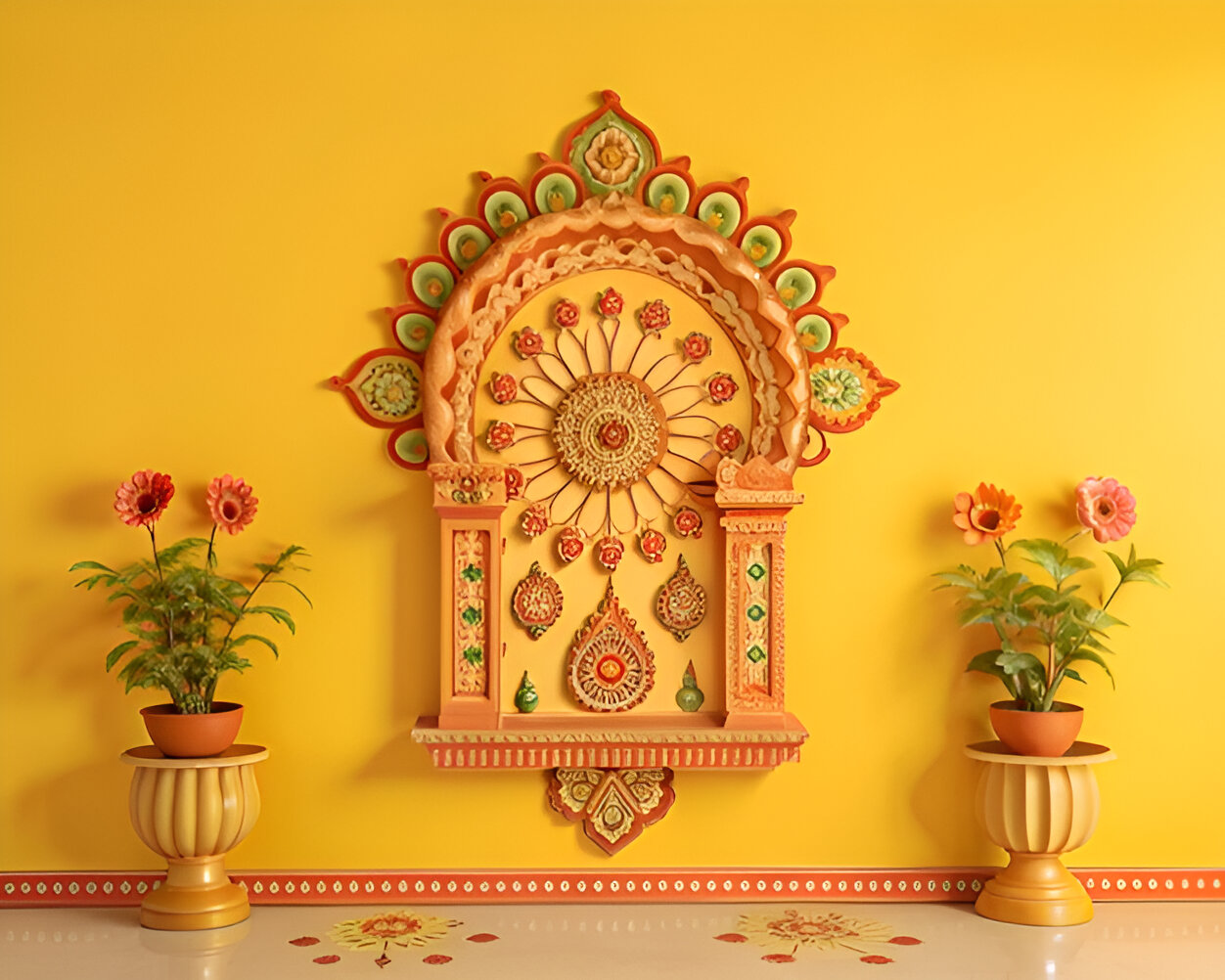When it comes to designing a pooja space, Indian families are usually very careful. Every small detail, from the direction the mandir faces to the color used, is thoughtfully chosen. One thing that surprises many people is that black color pooja mandir is often avoided in Indian homes. But why?
Let’s understand the reason behind this tradition and belief. Whether you’re setting up your first home mandir or planning to renovate, knowing this will help you make a mindful choice.
Why Is Color So Important in a Pooja Room?
In India, a pooja room or mandir isn’t just a furniture piece—it’s a sacred space. The colors used in this area are believed to influence the energy of the room. According to pooja room color as per Vastu, light and calming colors like white, yellow, and light brown are considered ideal as they create peace and positivity.
On the other hand, black color pooja mandir is considered too intense and heavy. Many believe it blocks positive energy and creates a dull, unwelcoming feeling in the space meant for prayer and peace.
The Cultural Belief Around the Black Color in Temples
In Indian culture, black is often linked with sorrow, negativity, and seriousness. While black is not “bad” in general, using it in sacred spaces like mandirs has never been a popular choice.
That’s why very few people go for a black mandir for home even if the design looks modern or stylish. Instead, they prefer colors that bring light, clarity, and warmth—just like the spiritual energy we want in a pooja room.
What Vastu Shastra Says About Black in Mandirs
Vastu Shastra, the ancient Indian science of architecture, strongly advises against the use of dark shades like black, dark blue, or grey in pooja rooms. These colors are believed to:
- Absorb energy rather than reflect it
- Reduce spiritual vibrations
- Make the space feel smaller and heavier
So, when choosing a black color pooja mandir, Vastu experts suggest thinking twice. If you love black for style reasons, try mixing it with lighter shades rather than going all-black.
Is Black Temple Design Completely Wrong?
Not at all! A stylish black temple design can still work if done with balance. Some modern homes use black panels or outlines along with white or gold idols and lights to soften the look.
You can even have a black base and build the rest of the mandir in lighter wood or marble. The key is harmony. But traditionally, most Indian homes still prefer not to use black as the main color in a temple space.
Popular Alternatives to Black for Mandirs
If you’re looking for ideas, here are some beautiful and Vastu-friendly options instead of black color pooja mandir:
- White: Symbolizes purity and peace
- Yellow: Brings positivity and light
- Brown/Wood Finish: Earthy and warm
- Gold Accents: Divine and elegant
- Marble Textures: Traditional and clean
These colors match almost all interiors and are often seen in both modern and traditional pooja rooms.
Where to Find Vastu-Friendly Mandirs Online
If you’re shopping for a new mandir and want the best options, we highly recommend Temple Hub. Visit Temple Hub to explore a range of mandirs designed for Indian homes.
From light wood mandirs to custom pooja mandirs with storage, they offer stunning choices without using harsh or heavy colors. Even their designer pieces follow spiritual aesthetics, making it easy for you to find what you need—without the black!
Final Thoughts
The reason most Indian families avoid a black color pooja mandir isn’t superstition—it’s a thoughtful choice based on tradition, energy, and design balance. If your goal is to create a pooja space full of light, hope, and peace, go for lighter, positive shades that support spiritual energy.
Black may be classy in fashion or furniture, but in pooja spaces, it’s best to keep things calm, clean, and sacred. Choose wisely—and if you ever need a perfect mandir for your home, don’t forget to check out Temple Hub.

